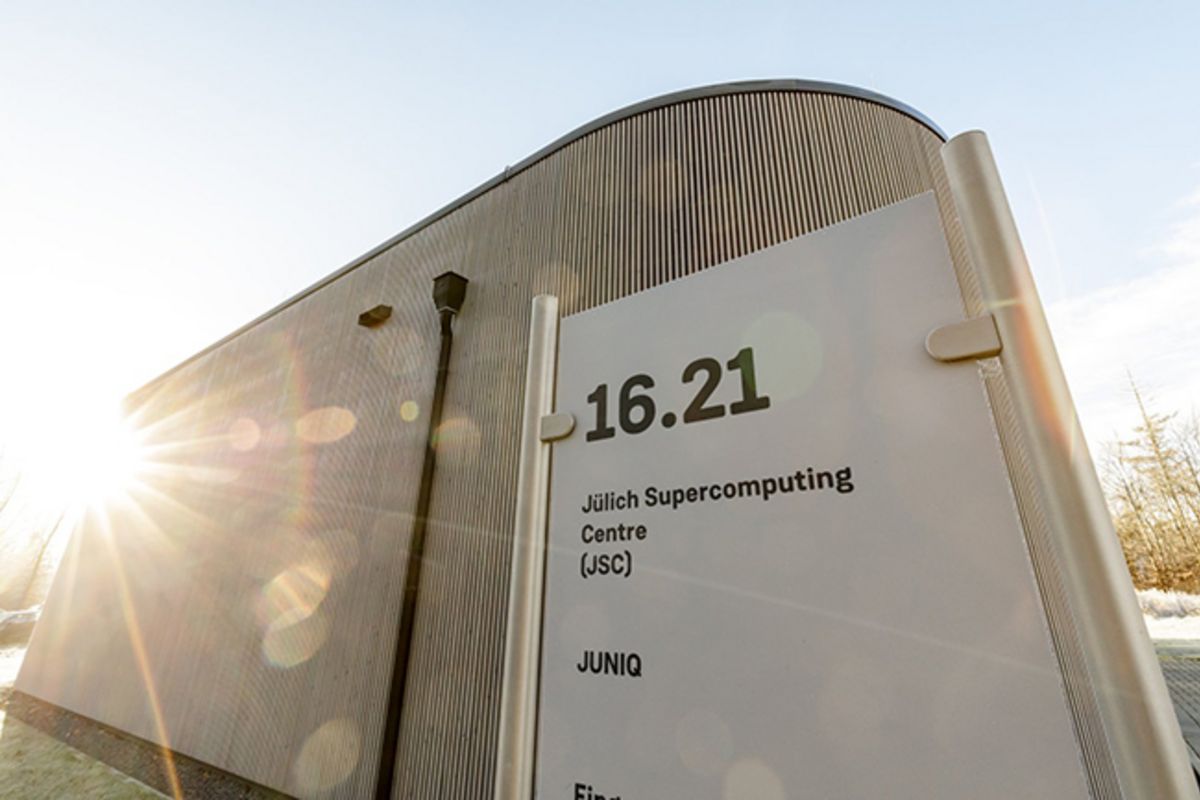NEWSFLASHES
JSC Inaugurates Europe’s First Quantum Computer with More Than 5,000 Qubits
Newsflash 1/2022 –
On Monday, Jan. 17, the Jülich Supercomputing Centre (JSC) inaugurated a D-Wave Advantage Quantum Annealer. JSC and D-Wave Systems also launched the company’s first cloud-based quantum service outside of North America. Taken together, these developments represent a major milestone in the European Union’s burgeoning interest in quantum computing, a complementary computing technology to traditional high-performance computing (HPC) that shows promise in more efficiently addressing challenges currently too time-consuming or difficult for traditional computers.
The machine serves as the cornerstone of the Jülich UNified Infrastructure for Quantum computing (JUNIQ), Forschungzentrum Jülich’s (FZ Jülich’s) newest user facility. JUNIQ was started in 2019 to facilitate quantum computing access for European researchers and will serve as the quantum computing component of JSC’s modular supercomputing concept, which provides access to a variety of tightly connected high-end computing architectures.
“We operate the system directly here at Jülich. This gives us the opportunity to integrate it closely with our supercomputing infrastructure,” said Prof. Kristel Michielsen, Head of Forschungzentrum Jülich’s Quantum Information Processing Group.

With more than 5,000 qubits, the D-Wave Advantage Quantum Annealer at FZ Jülich is the most power quantum computer outside of North America. Image credit: Forschungszentrum Jülich / Sascha Kreklau
According to Prof. Thomas Lippert, Director of JSC, integrating quantum computing resources of this scale into an HPC facility is a novel concept, but a logical one. “We’re also looking at ways to integrate the new system into our supercomputing infrastructure. At that time, to the best of our knowledge, this would be the first instance of a quantum computer working directly with a supercomputer,” he said. “This is made possible because the quantum annealer has over 5,000 qubits and is therefore big enough to help with application-related problems that are typically calculated on supercomputers.”
For a full report on the day’s events, you can read FZ Jülich’s press release or visit the JUNIQ website.
